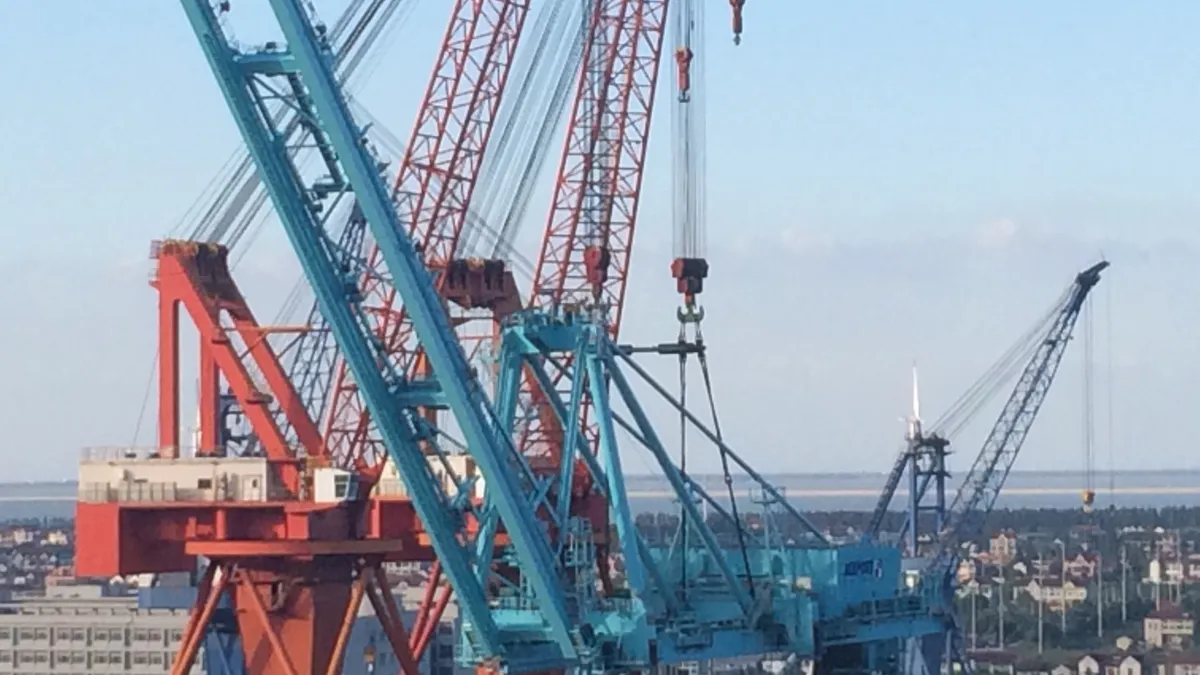Correction: This story has been updated to clarify that OSHA has proposed an extension of the rule's implementation. Comments on the decision are due by Sept. 29.
Dive Brief:
-
For the second time since 2014, the Occupational Safety and Health Administration could delay the effective date of its new crane operator certification requirement, this time to November 2018. The new rule is slated to go into effect this November.
-
Implementation was originally set for 2014, but the agency wanted more time to review the rules around operator certification, according to the National Commission for the Certification of Crane Operators (NCCCO). The latest extension would allow time for review in accordance with President Donald Trump's directive that all federal agencies re-review pending regulations.
-
Central to industry concern is the requirement that operators be certified according to type of crane as well as lifting capacity. The NCCCO also said that the agency, with industry input, is attempting to address the question of whether certification also means qualification.
Dive Insight:
Crane operation is a high stakes function of job sites and so OSHA no doubt must field a flurry of questions around operator training every time a high-profile accident occurs. Building booms across the nation have crane counters on alert, and New York City is one of the hot spots.
In 2008, a series of crane accidents killed multiple people in New York, and one incident exposed a crane inspector who allegedly lied about inspecting a crane just days before it collapsed. A deadly, high-profile collapse in February 2016, however, got regulators moving to revise crane rules in the city.
One of the new regulations is the mandatory suspension of operations in wind-gust conditions of 30 mph or higher on-site. An advisory group, formed by Mayor Bill de Blasio, also recommended that the New York City Department of Buildings require modern cranes with anemometers, black boxes and GPS tracking capabilities and phase older cranes out of service.












